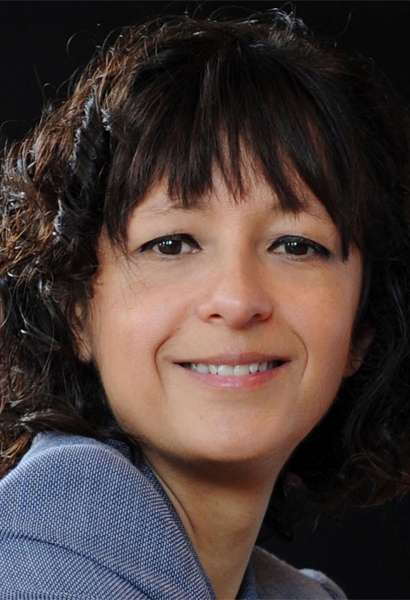

Birth: December 11, 1968
Specialty: Microbiology
Major Contributions:
Co-creator of CRISPR/Cas9 Mechanism
Director of Max Plank Institute for Infection Biology
Winner of 2020 Nobel Prize in Chemistry
Image: Wikimedia (CC BY-SA 4.0 DEED)
In order to keep a fresh perspective on her research, Emmanuelle Charpentier, changes her working environment frequently. Studying biochemistry and microbiology at the Pierre and Marie Curie University before earning her doctorate from the Institut Pasteur in 1995, she spent a year as a post-doctoral researcher at the institute. After which she traveled to the United States to work in a variety of settings including Rockefeller University, New York University Medical Center, and St. Jude Children’s Hospital.
She returned to Europe working as a professor and researcher making her way to Sweden in 2009. While she was working as Lab Head and Associate Professor at the Laboratory for Molecular Infection Medicine at Umeå University, she led a team studying the bacteria streptococcus pyogenes in order to understand how it can defend itself from viral attack. When a virus enters a bacteria cell its goal is to replicate and spread and it will destroy the bacteria cell to do so. To combat this attack bacteria have an adaptive immune system that allows them to recognize infectious DNA and instead of repeating this new code it cleaves it from its genetic material completely.
In April 2011 she approached biochemist, Jennifer Doudna, to propose a collaboration to study this mechanism known as clustered regularly interspaced short palindromic repeats, specifically CRISPR/Cas9. In 2012 they published their first paper describing their technique of gene editing which Charpentier has described as acting like a Swiss army knife that allows the repair of genes.
In 2015 Charpentier, along with Doudna, was named one of Time Magazine’s 100 most influential people. While remaining a visiting professor at Umeå University, she became a Scientific Member and Director at the Max Planck Institute for Infection Biology in Berlin, Germany. Wanting to strengthen fundamental research on pathogens causing disease in humans she founded the Max Planck Unit for the Science of Pathogens, Berlin and was named its Scientific and Managing Director in 2018.
For the development of a method for genome editing Charpentier, along with Doudna, was awarded the Nobel Prize in Chemistry in 2020.
Written by Angela Goad
Sources:
Emmanuelle Charpentier: An artist in gene editing
Max-Planck-Gesellschaft: Prof. Emmanuelle Charpentier, Ph.D.
Wikipedia: Emmanuelle Charpentier
Pioneers of revolutionary CRISPR gene editing win chemistry Nobel
Emmanuelle Charpentier – Breaking the Wall to Precise Gene Surgery (YouTube)
See Also:
Emmanuelle Charpentier & Jennifer Doudna (Time 100 Most Influential People)
Emmanuelle Charpentier on CRISPR-Cas9, Umeå University, Sweden (YouTube)
